May 19, 2025 | 03:47 GMT +7
May 19, 2025 | 03:47 GMT +7
Hotline: 0913.378.918
May 19, 2025 | 03:47 GMT +7
Hotline: 0913.378.918
This trend was highlighted at the Technical Seminar Towards the end of use of antibiotics for the purpose of stimulating growth and preventing diseases in livestock in Vietnam in 2025: challenges and solutions in animal nutrition from the experience of experts from France on November 29.
The event was jointly organized by the Ministry of Agriculture and Rural Development in collaboration with the French Embassy to share experiences and introduce strategies to end antibiotic use for growth promotion and disease prevention in livestock. It also sought to enhance collaboration between businesses from both countries.
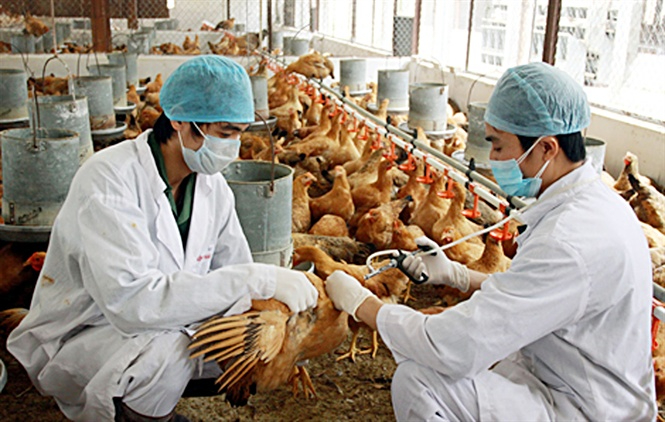
According to the outlined roadmap, by 2026, the use of antibiotics in livestock feed for disease prevention will also be prohibited, allowing their use only for disease treatment. Photo: TL.
Mr. Nguyen Hoang Hai, an expert in Livestock Feed (Department of Livestock), added that major markets such as the United States witnessed a 38% reduction, the United Kingdom 55%, the European Union 47%, and Germany 65%, indicating a substantial global decline in antibiotic use in livestock feed.
In Vietnam, prior to 2018, when antibiotics were permitted for use in livestock feed to stimulate growth, the country imported approximately 7,000 to 9,000 tons of antibiotic premix annually. In addition, raw materials for veterinary medicine production were also imported.
Before 2016, around 40 types of antibiotic premix were imported for use in livestock feed to promote growth. In 2016, the Ministry of Agriculture and Rural Development issued Circular No. 06/2016/TT-BNNPTNT, specifying the list and allowable levels of antibiotics for use in livestock feed for the purpose of growth promotion in Vietnam. This included 15 approved types of antibiotics. However, by 2018, Vietnam had banned the use of antibiotics in livestock feed for growth promotion. Currently, antibiotics are only used for disease prevention and treatment. According to the outlined roadmap, by 2026, the use of antibiotics in livestock feed for disease prevention will also be prohibited, allowing their use only for disease treatment.
"Though the 10-year period from 2016 to 2026 may not be overly long, the Ministry of Agriculture and Rural Development has made efforts to establish regulations governing the use of antibiotics in livestock feed, demonstrating the agriculture sector's determination to minimize antibiotic use in livestock feed," shared Mr. Nam.
Representatives from the Department of Livestock proposed that livestock feed production facilities adopt alternative solutions to replace antibiotics, such as probiotics, organic acids, and herbal remedies. It is essential to use high-quality ingredients and maintain strict control over the livestock feed production process. Mr. Nam emphasized that the use of antibiotics should adhere to prescribed prescriptions and recommendations from veterinary medicine manufacturers during livestock feed production. Facilities must implement proper hygiene procedures and control cross-contamination to minimize antibiotic resistance between different types of livestock feed.
Conversely, livestock farms should utilize vaccines for disease prevention, implement effective biosafety farming practices, and enhance awareness of the impact of antibiotics. Additionally, livestock farmers should use antibiotic-containing livestock feed according to the guidance and recommendations of the manufacturers.
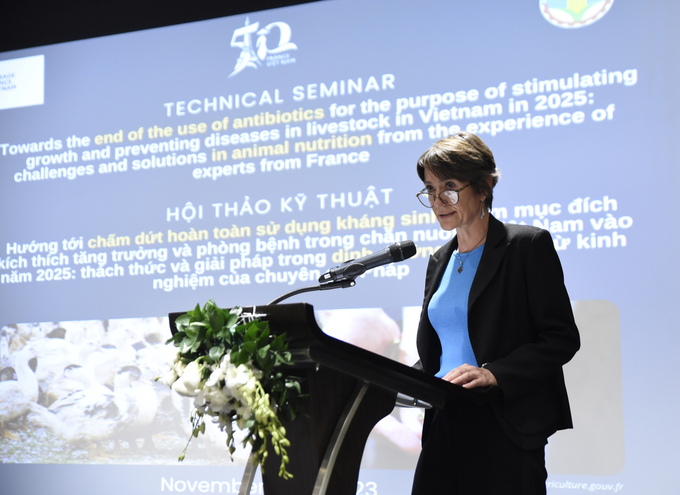
HE. Cécile Vigneau, First Counselor, Embassy of France, evaluates the reduction of antibiotic use in the livestock sector as a significant challenge for both countries.
HE. Cécile Vigneau, First Counselor, Embassy of France, evaluates the reduction of antibiotic use in the livestock sector as a significant challenge for both countries. It is also identified as a priority within the framework of approaching a health strategy that aligns with long-term cooperation and agricultural collaboration between the two nations.
Considered a top global threat to human health, the consequences of antibiotic resistance pose a severe challenge affecting the health of human communities, animals, livestock, and ecosystems. The approach to One Health addresses these issues by implementing various measures encompassing human health, veterinary medicine, and environmental protection.
The European Union (EU) has banned the use of antibiotics for growth promotion and disease prevention in livestock feed since 2006. Antibiotics for disease prevention must adhere to prescribed regulations and usage guidelines. Since 2011, the French Ministry of Agriculture and Food has committed to reducing antibiotic use in livestock through various programs involving strong participation from different stakeholders. By 2021, the goal of reducing exposure to and use of antibiotics in livestock had been achieved by 52%, with over 90% reduction in the use of certain antibiotics and veterinary drugs. Building on this success, the French Ministry of Agriculture and Food has announced plans to expand efforts to combat antibiotic resistance, focusing on promoting rational antibiotic use, reducing antibiotic-containing substances, emphasizing disease prevention that requires antibiotics, and limiting prescriptions, especially at the individual level.
Naturally limiting antibiotic use requires implementing biosafety measures at livestock facilities and creating favorable conditions for livestock through antibiotic vaccinations and farm management.
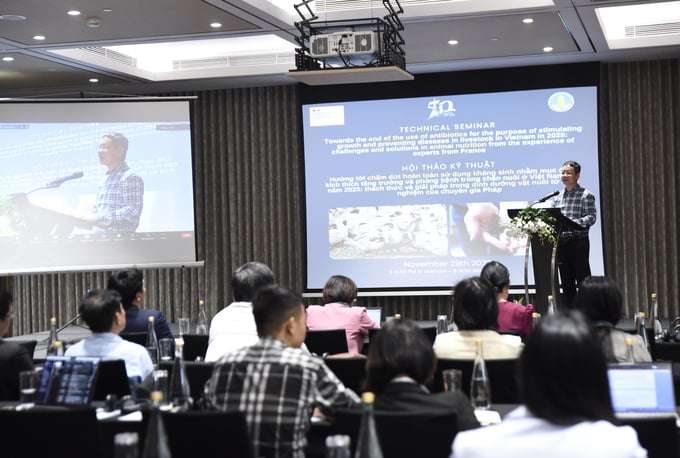
Mr. Vu Thanh Liem, Deputy Director of the International Cooperation Department.
Ms. Vigneau emphasizes that antibiotic use depends on improving livestock conditions and, through enhancing the quality of livestock feed, animal welfare, and researching alternative treatments for bacterial diseases, it is possible to reduce the impact on human health by minimizing or using antibiotics judiciously in livestock. This, in turn, improves farming efficiency, enhances long-term livestock performance, and promotes free trade.
Mr. Vu Thanh Liem, Deputy Director of the International Cooperation Department, Ministry of Agriculture and Rural Development shared that antibiotic use in livestock is a nuanced issue, and while it may be challenging to directly apply the entire French livestock production process to Vietnam due to differing weather conditions, climates, and environmental factors, the Vietnamese livestock sector is eager to learn from solutions that improve the health and disease prevention of livestock using drugs and feed supplements rather than antibiotics. This is particularly relevant as the agricultural sector strives to achieve sustainable development goals, especially in the transparent, responsible, and sustainable transformation of the food system.
Translated by Dieu Linh

(VAN) Deputy Minister Nguyen Quoc Tri also expressed his hope that Cuba will soon overcome its current challenges, attain food security, and further expand cooperation with Vietnam.

(VAN) The project contributes to enhancing the resilience of communities vulnerable to the impacts of climate change, with a primary focus on local women.
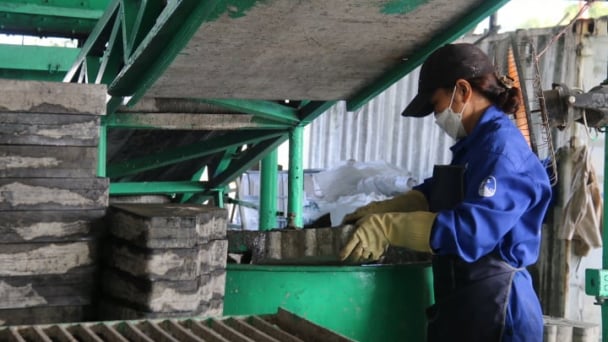
(VAN) Green materials help save energy and resources. However, after more than 10 years, Vietnam has only developed over 200 green buildings with more than 6 million square meters of floor space.

(VAN) Vietnam - Thailand Business Forum 2025: One plus one on three connects, marking a milestone in the comprehensive strategic partnership between the two nations.
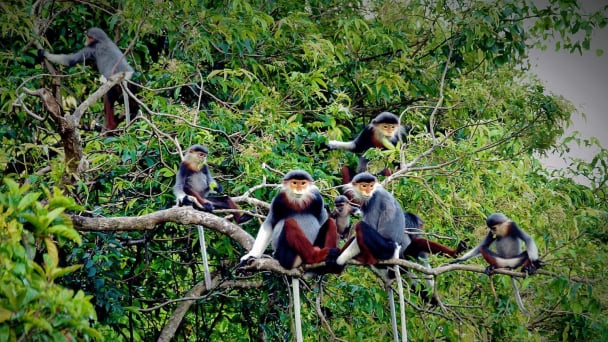
(VAN) The United Nations designated 22 May as the International Day for Biodiversity 2025 with the theme 'Harmony with nature and sustainable development.'
![Multi-channel, multi-directional Vietnamese agricultural markets: [8] A national strategy is needed](https://t.ex-cdn.com/nongnghiepmoitruong.vn/608w/files/phucpm/2025/05/15/1435-thi-truong-nong-san-viet-da-kenh-da-huongbai-8-can-mot-chien-luoc-quoc-gia-084750_728.jpg)
(VAN) The Chairman of Hung Nhon Group shared: ‘Opening up and tapping into new markets is the right and strategic direction for Vietnam's agricultural sector.’
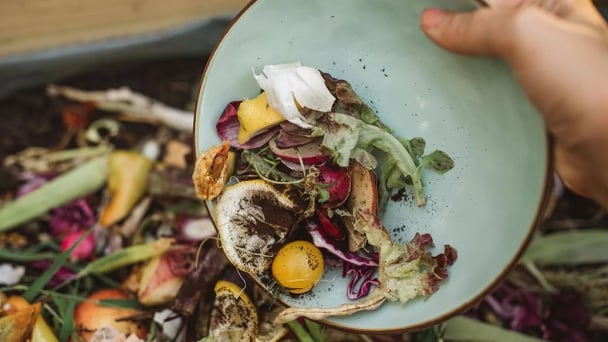
(VAN) Food waste has become a serious issue in modern society, especially in rapidly urbanizing and developing cities like Hanoi.